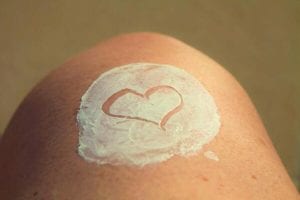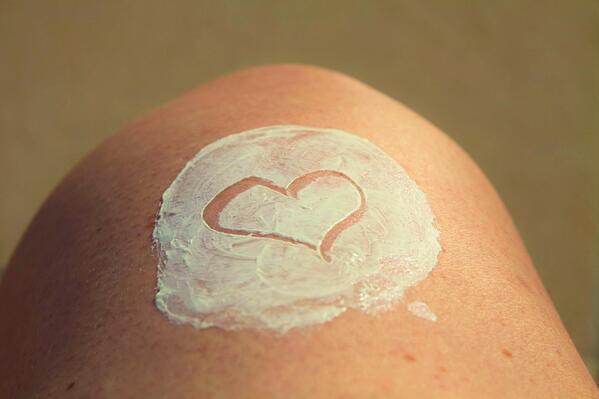Your skin is important in many ways. It performs vital tasks for your body, including protecting you from the sun’s harmful rays, viruses, and bacteria. Your skin also produces vitamin D – essential for many bodily functions. As important, healthy, clear skin helps you to look and feel good. A nutritious diet and exercise contribute to keeping your skin glowing but there are a number of other ways you can ensure that your skin stays healthy. Below are 9 simple tips that anyone can easily follow.


Wear Sunscreen Year-Round
Many people think that if it’s not summer or if they aren’t at the beach, they don’t need to wear sunscreen. But the suns’ rays can be harmful all year long.
UV plays a major role in forming both melanoma and nonmelanoma skin cancers over time. Each year, about 2.8 million Americans are diagnosed with skin cancer and over 8,000 Americans will die from melanoma.
In the winter, skin tends to be more sensitive to the sun than tanned summer skin because it is no longer used to the UV radiation. Melanin concentration is reduced as well since we have less UV radiation during the winter so the skin produces less of it. So when your skin is not as tan, it will be more sensitive to UV radiation.
Even indoors with the weaker, low winter sun, glass blocks only UVB rays, which is why you don’t burn. It doesn’t block the UVA rays that cause sunspots, fine lines, and some skin cancers.
So use a sunscreen if you’re spending time outside – at least SPF 30. And be sure to apply it correctly! You can find all the details on the proper sunscreen application here!
Wash with Gentle, Fragrance-free Soaps
The best reason to use soaps that are gentle and fragrance-free is that they are good for you! A soap that brands itself as “gentle” is generally a lower PH and therefore less disruptive to the surface moisture barrier. These will leave your skin more hydrated, pulling less water out of your skin and preventing dead, dry skin cell buildup.
“Fragrance” in the soap can be a mixture of various scent chemicals and ingredients used as fragrance dispersants such as diethyl phthalate. Fragrance mixes can cause allergies and dermatitis.
Moisturize Regularly
Keeping your skin hydrated goes a long way to keeping it healthy and younger-looking. It’s important to use the right kind of moisturizer as it helps the skin to maintain its balance. If the skin is too dry or if it’s too oily, it can cause common skin problems like acne.
If your skin tends to be dry, look for a cream – they tend to have higher oil content. Choose a lotion or cream with an SPF of 15 to protect your skin during the day. Also use lotions that are allergy and dermatologist tested and oil-free, non-comedogenic so they don’t clog pores. For your face, look for ingredients containing Hyaluronic acid. Hyaluronic acid is a sugar molecule and key component in keeping connective tissue, including skin, lubricated and moisturized. If you have sensitive skin, fragrance-free is best.
The Dermatologists and Skincare Specialists at Advanced Specialty Care recommend the Under Everything Super Moisturizing Serum. It’s a unique Hyaluronic acid-based, oil-free gel designed to enhance skin moisture & improve the appearance of photo-aging and gentle enough for all skin types.
When you moisturize is just as important. Always moisturize right after you shower as hot water strips your skin of moisture and oils. Apply moisturizer on your face daily after washing, while it’s still a bit damp.
Don’t Over Exfoliate
Exfoliating your skin removes old, dead skin cells on the outer layer. If you don’t exfoliate, those dead cells can clog pores, leading to breakouts. So exfoliating on a regular basis is beneficial for your skin.
If you have a facial, chemical peel or microdermabrasion, they all include a form of exfoliation. There are also a number of over-the-counter products that include tiny, rough particles that scrape away dead skin cells.
While it may feel good to slough off that dead skin, you don’t want to over-exfoliate as it can lead to irritation and dry skin. So keep it to once or twice a week.
We also advise patients to stay away from exfoliants that contain walnut shells as these can cause damage to the skin.
Use a Medical Grade Retinol & Vitamin C for Anti-Aging
For those who want to keep a young-looking complexion, anti-aging ingredients are vital. Retinol is an antioxidant and an important skin-restoring ingredient, making skin look healthier, smoother, and more vibrant.
There’s a common fear that retinol may aggravate the skin. Often the aggravation comes from other ingredients rather than the retinol or from starting a retinol regimen too quickly. Look for well-formulated, medical-grade products that do not include irritating ingredients, and keep track of how your skin responds to different strengths of retinol. You may not need as much as you think. Research shows that concentrations as low as 0.01% retinol are effective for improving signs of aging. We suggest starting with a pea-size amount of retinol every other day as your skin adjusts.
Vitamin C is another powerful antioxidant and helps produce and preserve collagen in the skin, slowing down aging. Vitamin C also plays a role in protecting your skin from damage from UV rays and air pollution. An added bonus is the curative properties of Vitamin C, helping to more quickly heal small cuts, acne scars, and blemishes. Vitamin C is in many serums or creams. Remember, you need to use it consistently as it needs to build up in skin cells over several weeks.
It’s important to use a medical-grade skincare product as these contain the purest ingredients and have been rigorously tested and developed to ensure their efficacy and to correctly balance the number of active ingredients. Read more about medical-grade skincare here.
Avoid Foods with High-glycemic Index
When it comes to diet and acne, the only scientifically proven foods to flare acne are skim milk and foods that contain a high-glycemic-index such as drinks with sugar. Researchers have found that foods and drinks that are high glycemic – such as processed foods like white bread, pasta, crackers, and white rice, or soda, juice, and candy – spike blood sugar. This spike can also increase hormones. The hormones can stimulate oil production triggering acne. The same foods that are good for your overall health, fruits, vegetables, whole grains, are also better for your skin.
Have Regular Skin Checks
While a new mole or blemish on your body may not be attractive, it’s also important to be wary of the health implications. You should perform regular skin checks on yourself to scan for new moles or spots on your body. Also, be aware of moles that change – get larger or change color – especially if they change quickly and be on the lookout for new lesions as well, especially those that bleed, itch, and don’t heal. All of these may be signs of skin cancer or precancerous spots. Click here for some guidelines on what to look for.
Though your regular self-exams can help you detect abnormal skin spots, you should also have an annual skin check with a Board Certified Dermatologist. Dermatologists are specially trained to spot abnormalities and areas of concern that you may have missed yourself.
As always, be sure to promptly share any areas of concern with your doctor. When detected early, skin cancer is much easier to treat.
Don’t Walk Barefoot in Public Showers, Locker Rooms or Pools
Walking barefoot around the public pool, gym and locker room isn’t uncommon but it’s also not a good idea.
In fact, walking barefoot in wet areas such as these is often how people develop plantar warts, caused by a strain of the HPV virus. This virus thrives in warm, moist environments and enters your body through tiny cuts, or weak spots on the bottom of your feet. Since you can contract the virus walking barefoot around swimming pools or locker rooms, best to wear sandals, water shoes or flip-flops.
The same goes for kiddos as they’re splashing around the pool or showering off in the shower at the beach.
Don’t Share Towels
Sharing towels, even with family members, is never advisable. Not only can malevolent things such as staph infection bacteria live on towels for days, even weeks, but towels can carry other, more benign things such as the virus molluscum.
Molluscum contagiosum is a common virus that causes flesh-colored bumps on your skin. While this is more common in children, it is contagious and adults can get it too. The virus stays in the body different amounts of time for different people, but the bumps can last for months or years. Most of the time, treatment is unnecessary if you have a healthy immune system but other times it may require treatment. You can find out more about Molluscum contagiosum here.
Dr. Ken Egan, Sarah Tullo, APRN, and Dr. Rand Werbitt provide complete adult and pediatric dermatology care at Advanced Specialty Care’s dermatology offices in Danbury, Ridgefield, Norwalk and Stamford, CT. We also offer same-day dermatology appointments in our Danbury, CT office.

